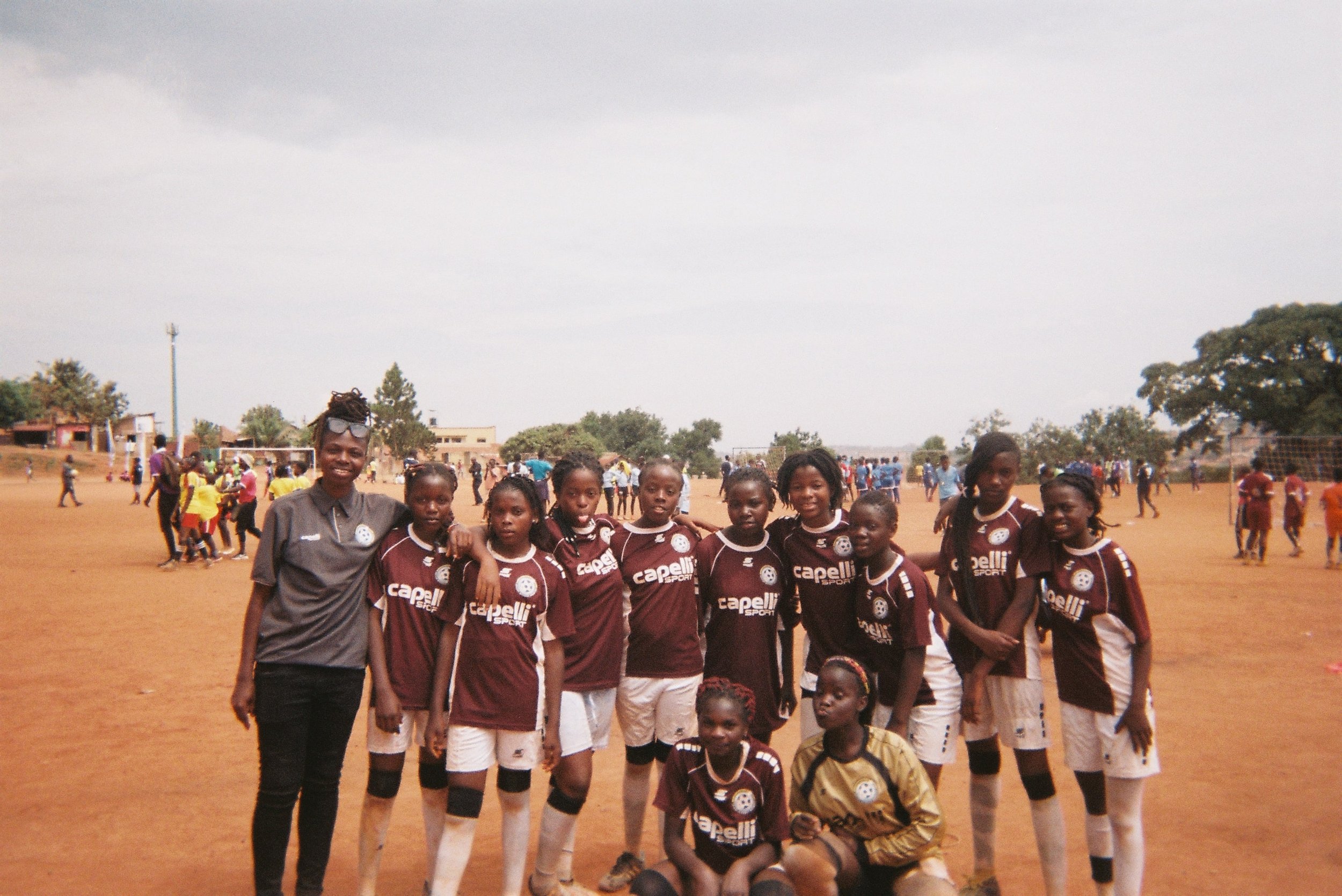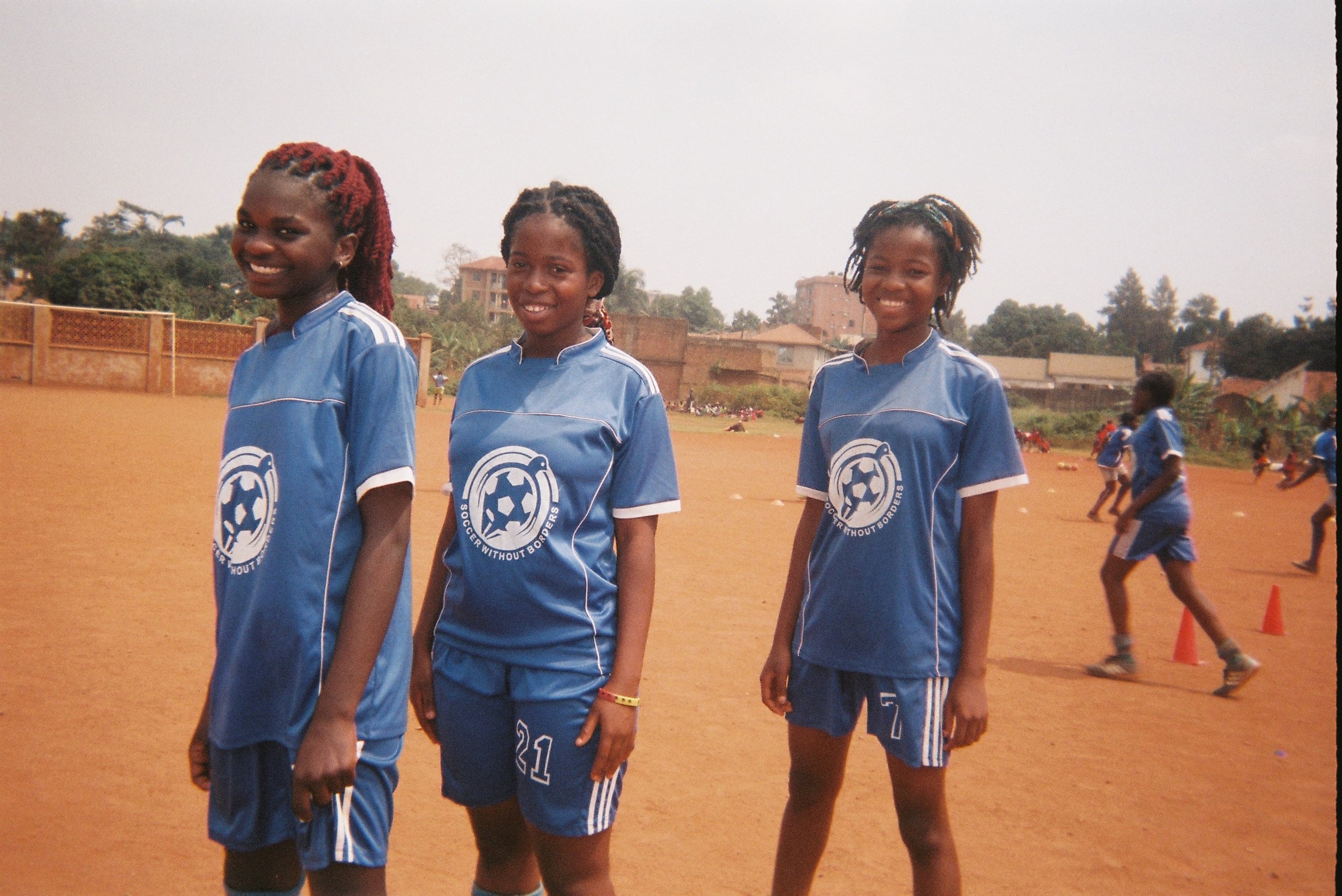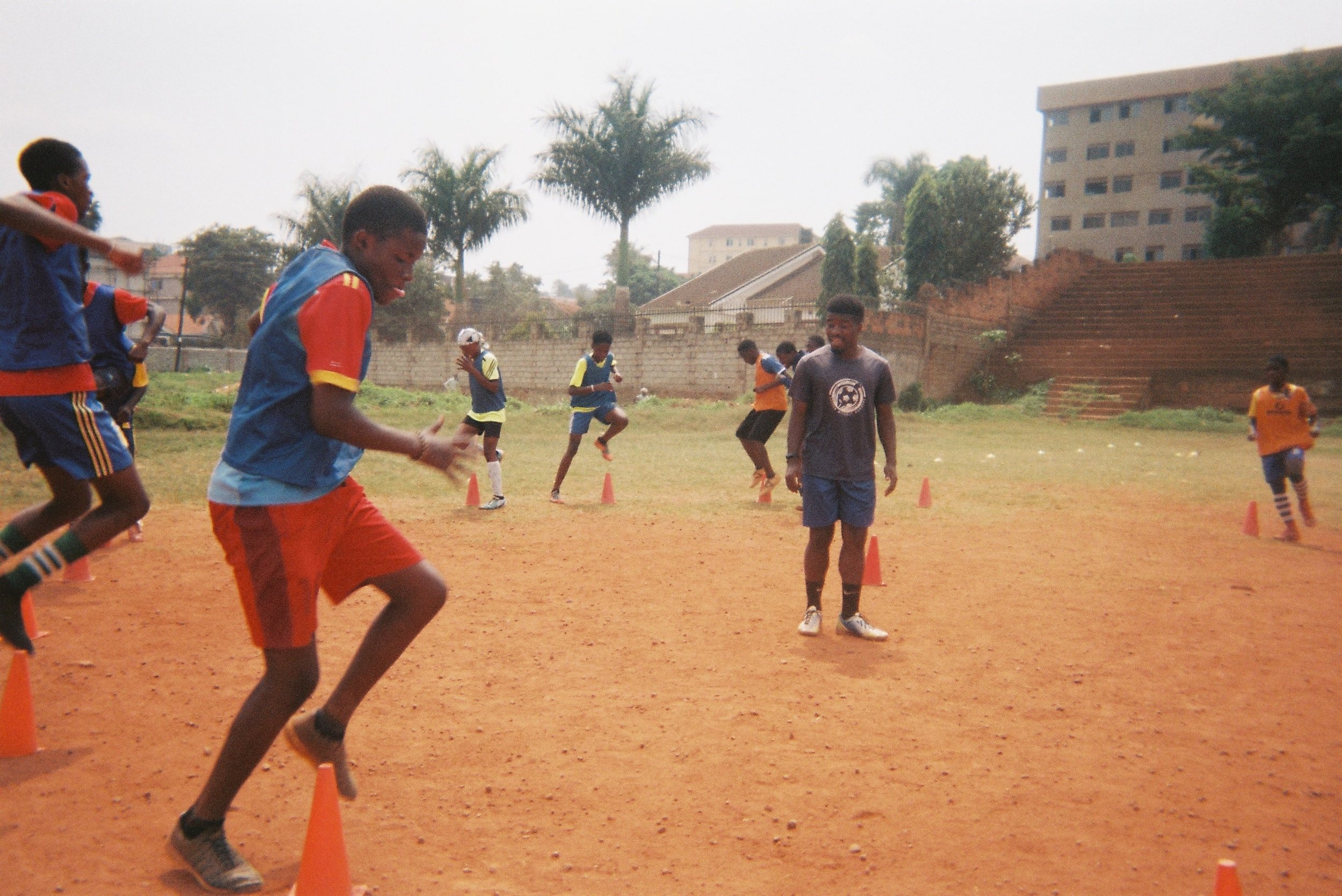Repairing Broken Hearts
Fahaby Kitimbo, Uganda
Fahaby Kitimbo is Project Manager at Soccer Without Borders (SWB) Uganda. SWB Uganda is a partner of Tackle, an award-winning NGO using football to deliver Sexual and Reproductive Health and Rights (SRHR) information and services to young people on football pitches across Africa.
Tackle trains local SWB coaches, staff, and community leaders with their methodology and provides support for the coaches to deliver sessions to players. Alongside receiving sexual health information during football sessions from their coach, players also have the chance to access free sexual health services at sessions and football tournaments.
My name is Fahaby Kitimbo AKA Coach Kent. I am a former player at Makerere University where I also obtained a Bachelor's Degree in Statistics, graduating in 2019. Currently, I am a Project Manager at Soccer Without Borders Uganda where I lead the football side of the program.
I started playing football at Kawempe Muslim Secondary School (well known for developing girls football). It took me three years to make it to the senior team since I started playing from scratch, and continued throughout my high school and university. My football career as a player ended in 2018 after I got a serious knee injury and could not continue playing competitively, so I decided to make an impact on football as a coach. I had a few personal projects which led me to Soccer Without Borders in 2020.
What did you try to show with the photos? Was there any wider meaning with the photos?
The photos were taken on different occasions during Soccer Without Borders (SWB) activities on and off the pitch. The people in the photos are SWB participants, coaches, and players from different teams participating in the SWB programs.
I wanted to cover each SWB programming sector which includes soccer, girls programs, and English learning. I was showcasing what SWB does and my contribution to the organisation and the community as a female coach.
My favourite photo was taken of SWB Dolphins with their coach during the 5th SWB Kampala Girls League. I used to coach this team. We came a long way to get to where we are now…
I joined SWB in January 2020, where I started coaching girls who had never tried football before. After our return following Covid, I connected with several players but particularly the SWB Dolphins who had played football for two years but they were not skilled enough. They were still beginners who were still struggling to control the ball.
I took time coaching them and tried to be a role model to them. They always tried to do what I did and at SWB we believe that ‘’if she can see it she can be it”. After two months we kicked off our SWB Kampala Girls League and we had two teams participate - the advanced team SWB Orcas (U17) and the beginners SWB Dolphins (U15). The Dolphins lost all their games but we managed to get fairplay points. Being able to play more games and to train more often brought us together with a special bond beyond only playing soccer. The longer they played together the better they got at the sport. They know each other's weaknesses and strengths.
Eventually some of the players relocated and could not make it for the SWB program. Others left because they had excelled in SWB activities and went to attend other programs, but all this never stopped the team from growing. Now everyone on the team is an intermediate player. And now I concentrate on the advanced U17 team SWB Orcas.
What role does football play in your community and Ugandan society?
Football is one of the biggest sports in Uganda and the most watched. I witnessed the crowds growing during our last three editions of the Kampala Girls League. So many people are entering the sport as players, administrators, medics, and coaches.
Football has provided employment opportunities to so many Ugandans as coaches and administrators, which has reduced unemployment. Football in Uganda has created a strong bond between coaches, players and organisations.
Football has helped to keep so many people busy, sharp and fit, which reduces the possibilities of acquiring diseases. Football here in Uganda has done a great role in repairing broken hearts and brains. We use it as therapy. Through football for good sessions, people learn a lot and it impacts their life.
What impact has Tackle had on you?
Tackle has played a big role in my coaching journey. First of all, it has given me a network of coaches, where I can now access support and advice on issues related to football.
Tackle introduced me to Sexual Reproductive Health and Rights (SRHR)sessions on the pitch, taught me on how to sensitise the youth about mental health and HIV/AIDs through football (specifically on the pitch), and how best to explain in a limited time period using their session delivery approach.
What opportunities are there for women in football in Uganda?
Women are advocating to join male-dominated fields and football is one of these. Many women’s soccer teams have been created and leagues are available for girls to play. It was recently made a requirement for men’s teams to have women’s teams thus creating more opportunities. At SWB we give both girls and boys equal training time and opportunities.
What does football mean to you? What ambitions do you have for the future?
Football became part of me when I was 13 years old. Since then, we have never left each other. 80% of my life is football - work, friends, networks, travels and so much more. I am blessed that I chose football.
As a football coach, I am striving to increase the number of girls playing football and also to retain those girls already playing, because in many cases they stop between the age of 15 to 18. I aim to make the girls love the sport, providing them with a safe space and also being their role model.
What is the future for football in Uganda?
In the next five years, I can see a huge increase in the number of girls playing soccer, because women's football is growing fast. Also I can see an increase in the number of female coaches and referees in Uganda who will be good role models to our girls. Women’s football will start paying off like men's football.














